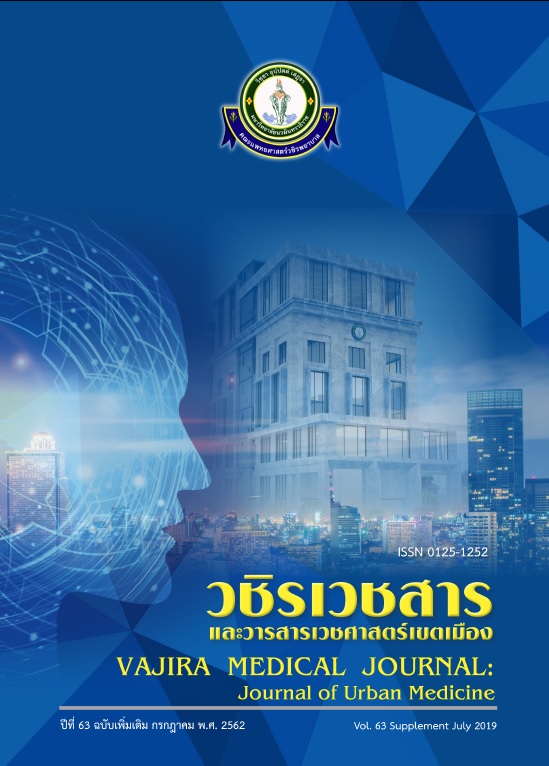Roles of Network Partners in Managing a Health Promoting School in Bangkok
Main Article Content
Abstract
A health promotion school is a health promotion program at a school level organized to prevent public health problems. This program is conducted under a school’s role of being the beginning point and the center for health development along with education by integrating health promotion, disease prevention and control and environmental health, leading to a holistic development in the school area. This can be achieved by creating the cooperation between the government, private organizations, local administrative organizations and communities to ensure good health of the public. The objective of this article was to present problems in the implementation of a health promoting school and basic management, the participation among all sectors, the creation of network partners in both public and private sectors, communities and schools. These factors are important for the successful implementation of a health promoting concluded that problems should be solved in cooperation with Network partners and establish guidelines for creating the participation of the network partners for sustainable development.
Downloads
Article Details
References
2. World Health Organization. Global Standards for Health Promoting Schools. 2018. [cited 2019 June 15]. Available from: https://www.who.int/health-promoting-schools/en/.
3. Office of the National Economic and Social Development Council. Thailand’s 20-Year National Strategy from 2017 – 2036. 2561. [cited 2019 May 20]. Available from: http://www.ratchakitcha.soc.go.th/DATA/PDF/2561/A/082/T_0001.PDF.
4. Wattanayingcharoenchai S. Driving the policy “Moderate Class, More Knowledge” Health. Office of Permanent Secretary; 2558.
5. Department of Health. Guideline for the implementation of health promotion schools. Bangkok: The Agricultural Co-operative Federation of Thailand., LTD.; 2545.
6. Department of Health. Handbook for Health Promoting School (Revised edition 2015). Bangkok: Academic Service Office, Silpakorn University; 2560.
7. Health Education Division. Network construction and participation in changing the health behavior of the community. 2556. [cited 2019 June 15]. Available from: file:///C:/ Users/win10/Downloads/080420151827433659_linkhed.pdf
8. Pupaiboon R, et al. Handbook for health caring and promotion for school health nurse. Bangkok:World Health Organization; 2006.
9. Thongsri P. and Chiangkhong A. Community Health Nurse’s Roles in School Health Service. Journal of Public Health Nursing. 2018; 32(2):181-96.
10. Prawet Wa Si. Thai Health’s Strategies: Triangle that moves mountain to the strength of the country. 2559. [cited 2019 May 20]. Available from: https://www.thaihealth. or.th/Content8hoskg,njv.
11. Siripornpanich V. and Kotchabhakdi N. Developmental and Behavioral Childhood. Bangkok: P.A. Living Printing; 2561.


